Your basket is currently empty!

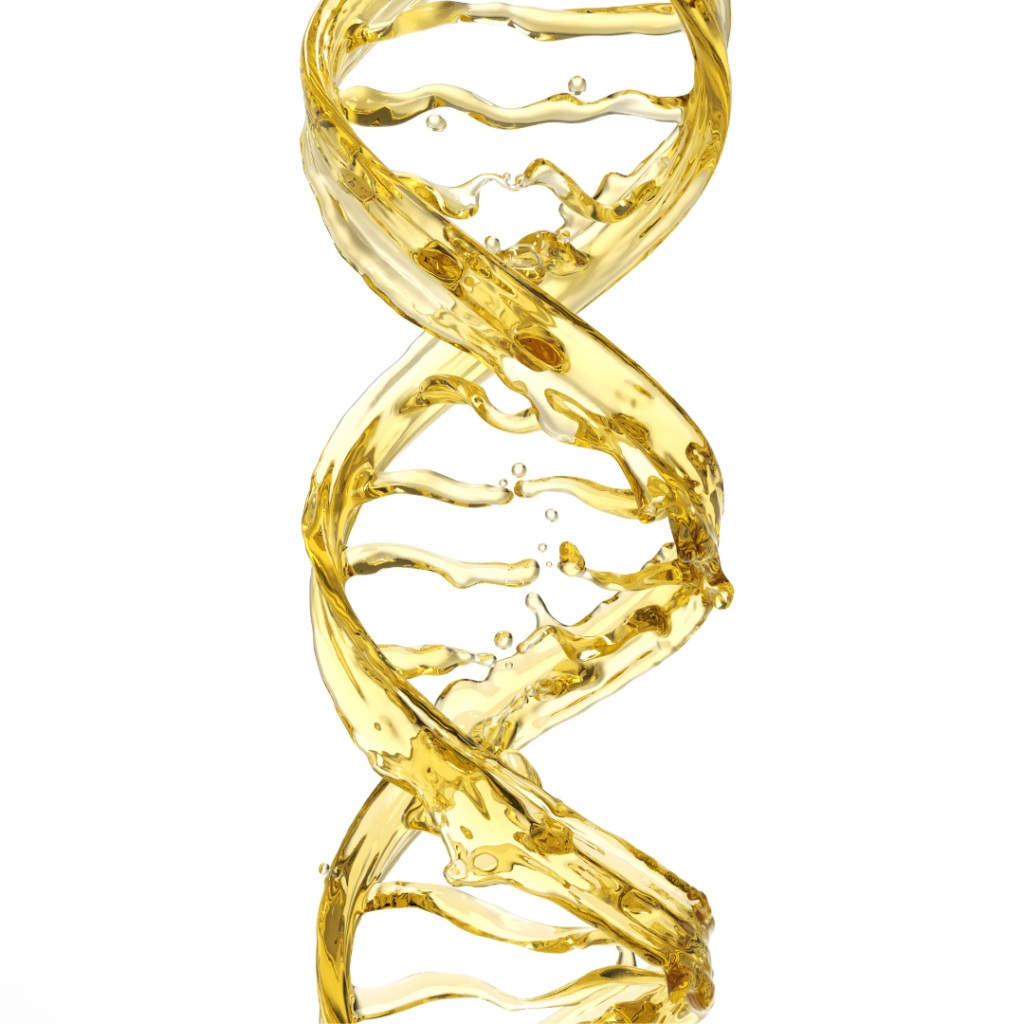
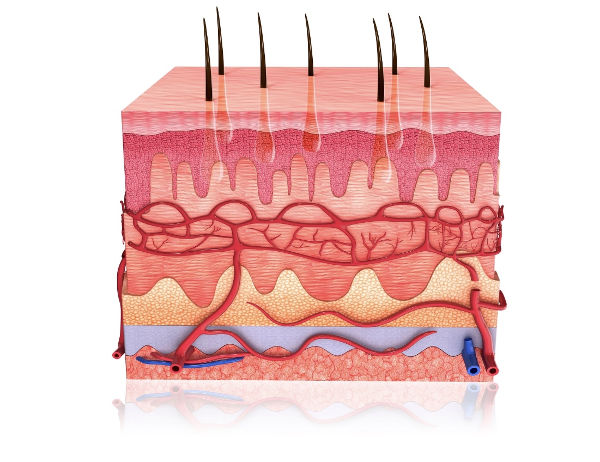
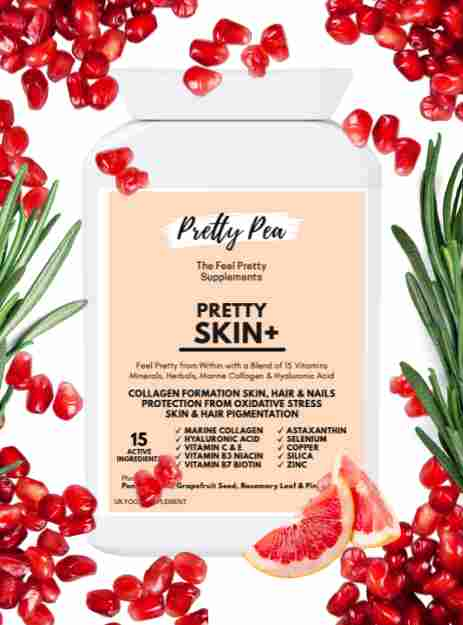
Collagen Supplement
PRETTY SKIN+ HAIR & NAILS
£25.99
Pretty Skin, Hair & Nails Starts From Within!
15 Skin, Hair & Nails Nourishing Nutrients
Marine Collagen
Hyaluronic Acid
Collagen Formation
Skin & Hair Pigmentation
Protects Cells from Oxidative Stress
Cartilage & Connective Tissues
Bones
UV Protection
Inflammation

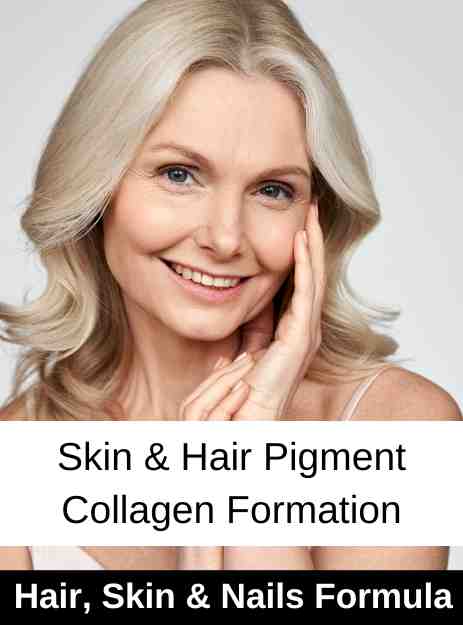
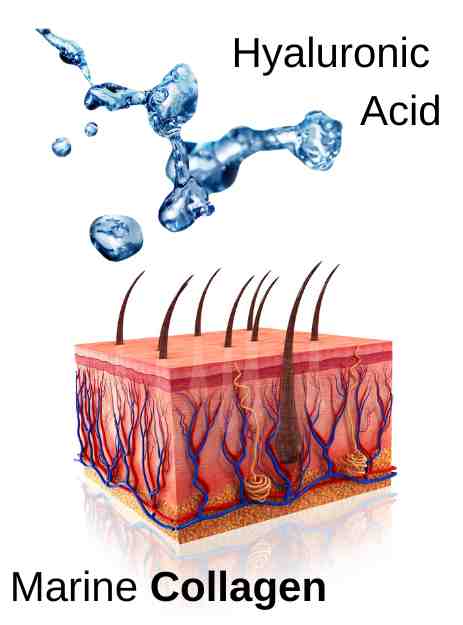
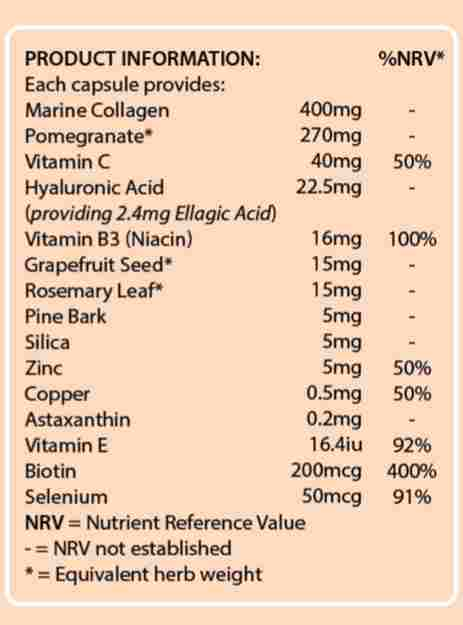
FEELING PRETTY STARTS ON cellular level
Cellular Skin, Hair, Nail Nourishment
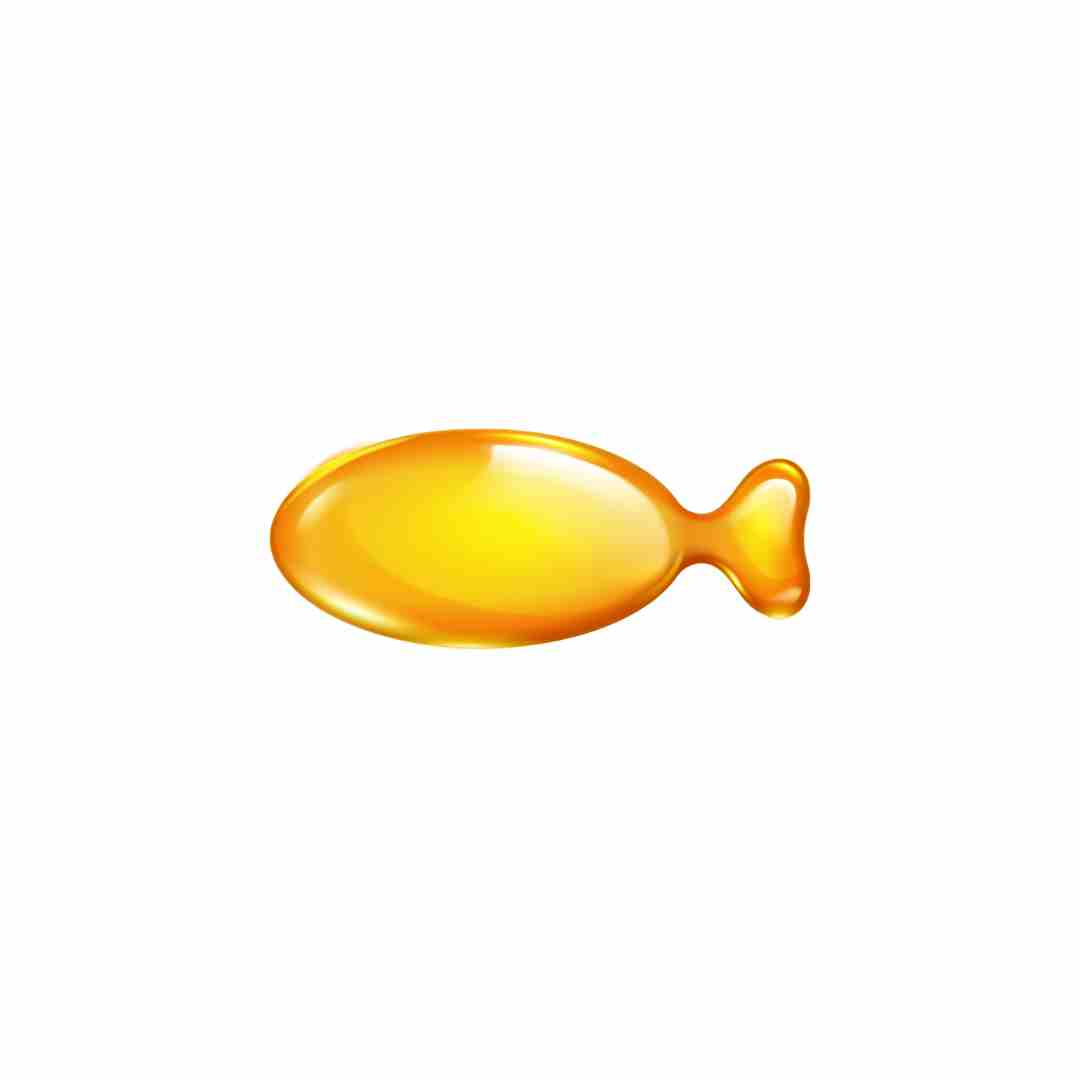
Marine Collagen
Fish Collagen is Absorbed up to 1.5 times more Efficiently with Superior Bioavailability over bovine or porcine Collagens
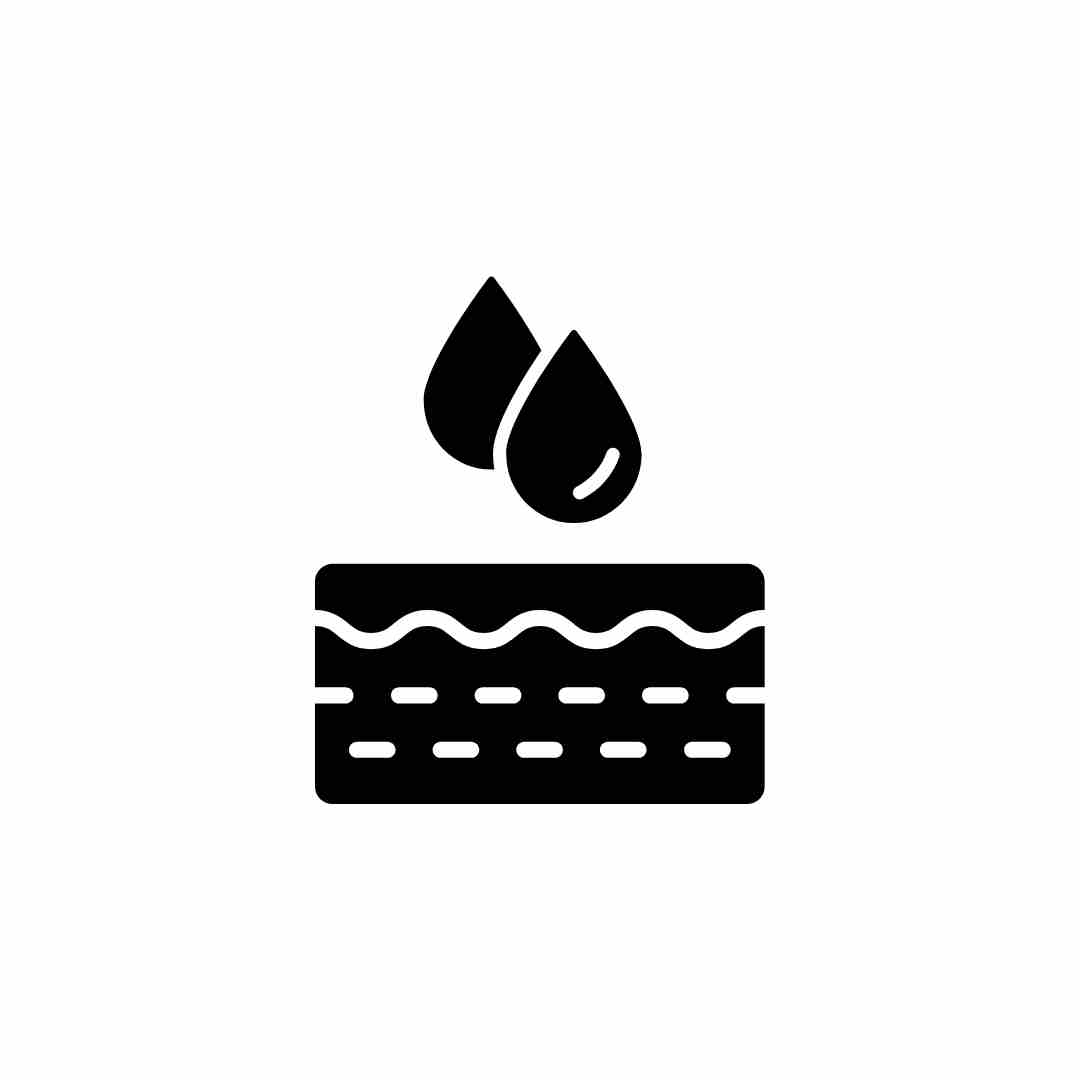
Hyaluronic Acid
Supports Skin’s Moisture. Levels decline with age, environment & diet resulting in Skin Sensitivity, Dullness, Fine Lines & uneven Tone
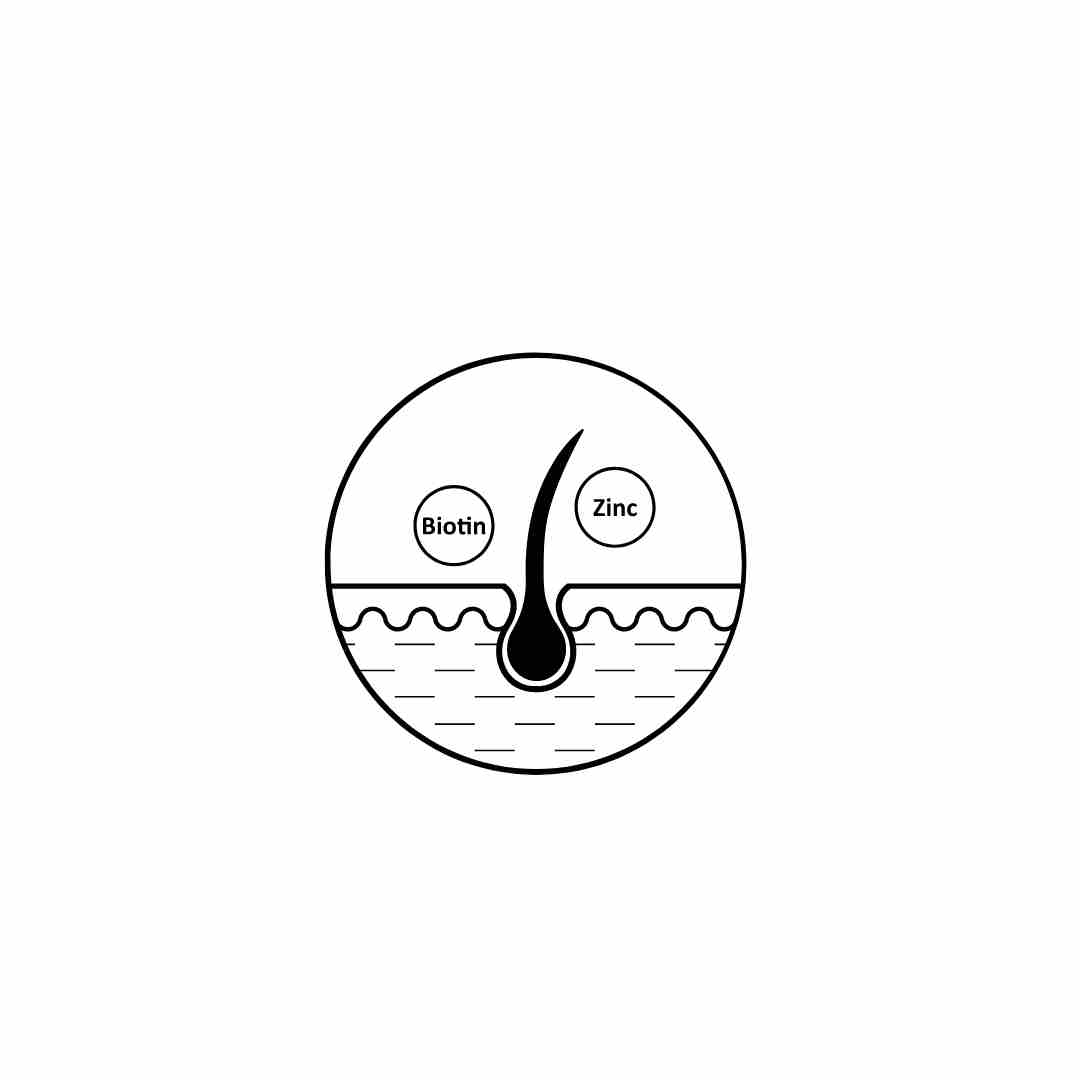
Skin, Hair & Nails Vitamins
Contributes to normal Skin Pigmentation and Hair Pigmentation

Oxidative Stress Protection
Antioxidant rich Vitamins Protect Cells from Oxidative Damage
Beautiful Benefits
Benefits
+
Feeling pretty starts from within on a cellular level. Our Pretty Skin+ formula not only nourishes your skin, hair and nails but is designed to help protect your entire body on a cellular level against damaging oxidative stress, the damage believed to be one of the biggest factors influencing how our body ages.
Our pretty formula includes 15 nourishing nutrients that work synergistically, including Marine Collagen, Hyaluronic Acid, Antioxidant Rich Vitamins & Minerals plus Herbals such as Grapefruit Seed, Pomegranate and Rosemary Leaf.
How many servings
+
Contains 60 easy take capsules
How to use
+
Take 1 to 2 capsules daily, preferably with meals.
Do not exceed the recommended daily intake.
Allergy Advice: Contains Fish
What’s Inside?
Marine Collagen
Collagen is the primary component in human skin. Collagen is the protein that provides structural integrity to the skin, hair, nails, bones, joints, tendons, ligaments, cartilage, teeth, gums and blood vessels.
With age, there is loss of skin elasticity and collagen, resulting in wrinkle formation and reduction in skin appearance.
Choose Marine Collagen
Marine collagen (400mg per capsule) is widely regarded as the highest quality, and most bioavailable source of collagen.
Marine collagen has many advantages over land animals sources. Fish collagen is absorbed up to 1.5 times more efficiently into the body and has superior bioavailability over bovine or porcine collagens. As marine collagen is absorbed more efficiently and enters the bloodstream more quickly, it’s considered the best collagen source for health purposes.
Fish collagen is a complex structural protein that helps maintain the strength and flexibility of skin, ligaments, joints, bones, muscles, tendons, blood vessels, gums, eyes, nails and hair. It’s a type I collagen, which is the most abundant collagen in the human body mainly found in the skin and tendons. Type I is best known for providing the foundation for beautiful skin, strong connective tissues and bones.
Fish collagen peptides have very specific amino acid compositions with a high concentration of glycine, hydroxyproline and proline. When fish collagen is ingested, hydroxyproline peptides are not completely digested to free amino acids and can be detected in the blood. These hydroxyproline peptides stimulate cells in the skin, joints and bones, and lead to collagen synthesis through cell activation and growth.
The use of marine collagen is environmentally friendly. Marine collagen is a fibrous protein extracted from the scales, skin, bones and fins of fresh and saltwater fish, including cod and salmon. These parts are considered waste products during fish processing, using them to create other products thereby helps reduce environmental pollution.
Slow the Effects of Aging
Marine collagen has antioxidant properties that are used in skin-care products to prevent or even repair the damage caused by environmental factors, such as UV rays and low humidity, as well as damage associated with the aging process.
Studies confirm that marine collagen is a versatile compound capable of healing skin injuries of varying severity, as well as delaying the natural aging process.
Wound healing
The ability (speed) of a wound to heal is dependent on the presence of collagen – collagen helps the body form new tissue.
Type I collagen is the most abundant structural component of the dermal matrix, so it makes perfect sense that having more type I collagen in your body may help wounds to heal faster.
It was previously believed that collagens were just structural supports. It’s now known that collagen and collagen-derived fragments control many cellular functions, including cell shape and differentiation, cell migration, as well as the synthesis of a number of important proteins.
Antibacterial Abilities
2016 Research found that fish collagen has another impressive component – collagencin – an antibacterial peptide. This study found that collagencin completely inhibited the growth of Staphylococcus aureus, more commonly known as staph or staph infection.
Beauty Vitamins & Minerals
+
Biotin, (vitamin B7) contributes to normal energy-yielding metabolism, normal functioning of the nervous system, normal macronutrient metabolism, normal psychological function, normal hair and skin and the maintenance of normal mucous membranes.
Biotin deficiency causes neuromuscular dysfunction, baldness, and dermatitis.
Biotin supplementation can be useful in cases of brittle nail syndrome or uncombable hair.
Vitamin B3 (niacin) contributes to normal psychological function, normal energy-yielding metabolism, normal functioning of the nervous system, the maintenance of normal mucous membranes, the maintenance of normal skin and the reduction of tiredness and fatigue.
Vitamin C: Healthy skin contains high concentrations of vitamin C which assists in antioxidant defence against UV-induced photodamage and in collagen synthesis.
Vitamin C contributes to maintaining the normal function of the immune system. It also contributes to normal collagen formation for the normal function of blood vessels, bones, cartilage, gums, skin and teeth, normal energy-yielding metabolism, normal functioning of the nervous system, normal psychological function, protection of cells from oxidative stress, the reduction of tiredness and fatigue, the regeneration of the reduced form of vitamin E and increases iron absorption.
Vitamin E sometimes called the ‘vitamin of youth’, is widely used in cosmetics for its antioxidant and anti-inflammatory properties.
It’s been observed that Vitamin E deficiency in the diet results in worsening of skin conditions, impaired wound healing, or excessive hair loss.
Vitamin E contributes to the protection of cells from oxidative stress.
Zinc: The skin is the third most zinc abundant tissue in the body and skin disorders can be associated with zinc deficiency. Zinc contributes to normal:
the maintenance of normal bones
the maintenance of normal hair, nails and skin
DNA synthesis
acid-base metabolism
carbohydrate metabolism
cognitive function
fertility and reproduction
macronutrient metabolism
metabolism of fatty acids
metabolism of vitamin A
protein synthesis
the maintenance of normal testosterone levels in the blood
the maintenance of normal vision
the normal function of the immune system
the protection of cells from oxidative stress and it has a role in the process of cell division
Copper contributes to the maintenance of normal connective tissues, normal hair pigmentation, normal skin pigmentation, protection of cells from oxidative stress, normal function of the immune system, normal functioning of the nervous system, normal energy-yielding metabolism and normal iron transport in the body.
Selenium contributes to the maintenance of normal hair, the maintenance of normal nails, the normal function of the immune system, normal thyroid function and the protection of cells from oxidative stress.
Hyaluronic Acid & Herbals
Hyaluronic acid is a glycosaminoglycan, which is a polysaccharide (essentially a very large sugar). It is naturally occurring in connective tissue throughout the body, with 50% being found in our skin. It’s a major component of our extracellular matrix (the framework in which our skin cells sit). It has a vital role in retaining moisture, with one molecule alone holding up to 1000x its own weight in water.
Skin cells naturally produce hyaluronic acid, in order to maintain moisture levels. However, factors such as the aging process, diet and environmental aggressors can cause levels to decrease resulting in skin sensitivity, dullness, fine lines and uneven tone and texture.
Hyaluronic acid plays a multifaceted role in various biological processes including skin repair, wound healing, anti-inflammatory, and immunomodulation and has remarkable biomedical and tissue regeneration potential.
Pomegranate is high in vitamins A, C, E and iron and has been an important traditional remedy in many ancient systems of medicine for centuries.
They are in high abundance of polyphenolic compounds, including phenolic acids, anthocyanins and flavonoids, exhibiting strong antioxidant properties, Pomegranate’s active compounds are now being studied for their substantial dermatological effects.
Studies have found that the rind contains ellagitannins which are anti-bacterial, anti-viral, anti-parasitic, anti-inflammatory and astringent.
Many cosmetic preparations include pomegranate polyphenols, because they have been proven to protect the skin from sun damage and promote the production of collagen.
Grapefruit seed is another popular herbal found in cosmetics. It contains high potency phyto-chemicals and known for its broad-spectrum anti-bacterial and anti-parasitic properties.
It supports the digestive system and immune system against infections. Glowing on the outside really does start on the inside.
Pine bark is a functional food with phenolic-rich bioactive compounds know for their effect on skin health.
Rich in oligomeric proanthocyanidin compounds (OPCs) and one of nature’s super antioxidants. Pine bark compounds also have antibacterial, antiviral, anti-aging, anti-inflammatory and anti-allergic properties.
Rosemary leaf is a potent antioxidant, with nutrients that can help protect skin cells from damage caused by the sun and free radicals. It also has anti-inflammatory, anti-microbial and skin toning properties.
Silica, made up of the most common elements on earth – silicon (Si) and oxygen (O2) – is essential for the body to create and maintain collagen.
Many aging problems are a direct result of the body’s inability to maintain adequate collagen, e.g. joint deterioration, brittle bones, hardening of the arteries, dry skin, weakened teeth and gums etc.
When we are young, silica levels in the body are high and our bones and joints are flexible; skin is supple and glowing. As we age, silica levels decline and without adequate tissue levels of silica, we manifest many of the signs of aging.
Safety & Contraindications
Results may vary from person to person.
Allergy Advice: Contains Fish
Store in a cool dry place, out of the reach of children.
Best before date: see base of container.
Caution: Do not exceed the recommended daily intake.
Supplements should not be used as a substitute for a balanced and varied diet and healthy lifestyle.
Always consult your doctor before taking any supplements or changing your diet.
As with all supplements, if you feel unwell, stop taking this product immediately and seek medical advice
References
Marine Collagen: A Promising Biomaterial for Wound Healing, Skin Anti-Aging, and Bone Regeneration – PubMed (nih.gov)
Zinc and Skin Disorders – PubMed (nih.gov)
Zinc and skin biology – PubMed (nih.gov)
Nutritional Supplements for Skin Health-A Review of What Should Be Chosen and Why – PubMed (nih.gov)
The key phytochemistry of rosemary (Salvia rosmarinus) contributing to hair protection against UV – PubMed (nih.gov)
Hyaluronic acid, a promising skin rejuvenating biomedicine: A review of recent updates and pre-clinical and clinical investigations on cosmetic and nutricosmetic effects – PubMed (nih.gov)
Rosmarinus officinalis and Skin: Antioxidant Activity and Possible Therapeutical Role in Cutaneous Diseases – PubMed (nih.gov)
Rosmarinus officinalis L. (rosemary) as therapeutic and prophylactic agent – PubMed (nih.gov)
Antioxidant and Antimicrobial Properties of Rosemary (Rosmarinus officinalis, L.): A Review – PubMed (nih.gov)
Potential of phenolic compounds from pomegranate (Punica granatum L.) by-product with significant antioxidant and therapeutic effects: A narrative review – PubMed (nih.gov)
Anti-Inflammatory and Skin Barrier Repair Effects of Topical Application of Some Plant Oils – PubMed (nih.gov)
Punica granatum L. (Pomegranate) Extracts and Their Effects on Healthy and Diseased Skin – PubMed (nih.gov)
Pine Bark Phenolic Extracts, Current Uses, and Potential Food Applications: A Review – PubMed (nih.gov)
Niacin related health claims | EFSA (europa.eu)
Niacin related health claims | EFSA (europa.eu)
Vitamin C related health claims | EFSA (europa.eu)
Vitamin C related health claims | EFSA (europa.eu)
Vitamin E related health claims | EFSA (europa.eu)
Scientific Opinion on the substantiation of health claims related to biotin and energy‐yielding metabolism (ID 114, 117), macronutrient metabolism (ID 113, 114, 117), maintenance of skin and mucous membranes (ID 115), maintenance of hair (ID 118, 2876) and function of the nervous system (ID 116) pursuant to Article 13(1) of Regulation (EC) No 1924/2006 – – 2009 – EFSA Journal – Wiley Online Library
Scientific Opinion on the substantiation of health claims related to biotin and maintenance of normal skin and mucous membranes (ID 121), maintenance of normal hair (ID 121), maintenance of normal bone (ID 121), maintenance of normal teeth (ID 121), maintenance of normal nails (ID 121, 2877), reduction of tiredness and fatigue (ID 119), contribution to normal psychological functions (ID 120) and contribution to normal macronutrient metabolism (ID 4661) pursuant to Article 13(1) of Regulation (EC) No 1924/2006 – – 2010 – EFSA Journal – Wiley Online Library
Zinc related health claims | EFSA (europa.eu)
Zinc related health claims | EFSA (europa.eu)
Scientific Opinion on the substantiation of health claims related to copper and protection of DNA, proteins and lipids from oxidative damage (ID 263, 1726), function of the immune system (ID 264), maintenance of connective tissues (ID 265, 271, 1722), energy‐yielding metabolism (ID 266), function of the nervous system (ID 267), maintenance of skin and hair pigmentation (ID 268, 1724), iron transport (ID 269, 270, 1727), cholesterol metabolism (ID 369), and glucose metabolism (ID 369) pursuant to Article 13(1) of Regulation (EC) No 1924/2006 – – 2009 – EFSA Journal – Wiley Online Library
Scientific Opinion on the substantiation of health claims related to copper and reduction of tiredness and fatigue (ID 272), maintenance of the normal function of the nervous system (ID 1723), maintenance of the normal function of the immune system (ID 1725) and contribution to normal energy‐yielding metabolism (ID 1729) pursuant to Article 13(1) of Regulation (EC) No 1924/2006 – – 2011 – EFSA Journal – Wiley Online Library
Selenium related health claims | EFSA (europa.eu)
Scientific Opinion on the substantiation of health claims related to selenium and maintenance of normal hair (ID 281), maintenance of normal nails (ID 281), protection against heavy metals (ID 383), maintenance of normal joints (ID 409), maintenance of normal thyroid function (ID 410, 1292), protection of DNA, proteins and lipids from oxidative damage (ID 410, 1292), and maintenance of the normal function of the immune system (ID 1750) pursuant to Article 13(1) of Regulation (EC) No 1924/2006 – – 2010 – EFSA Journal – Wiley Online Library